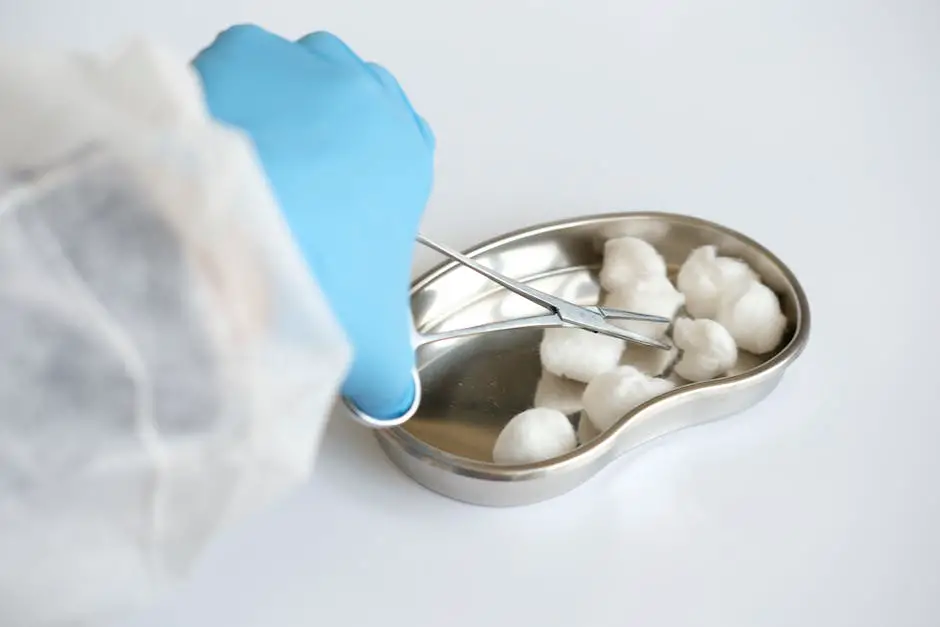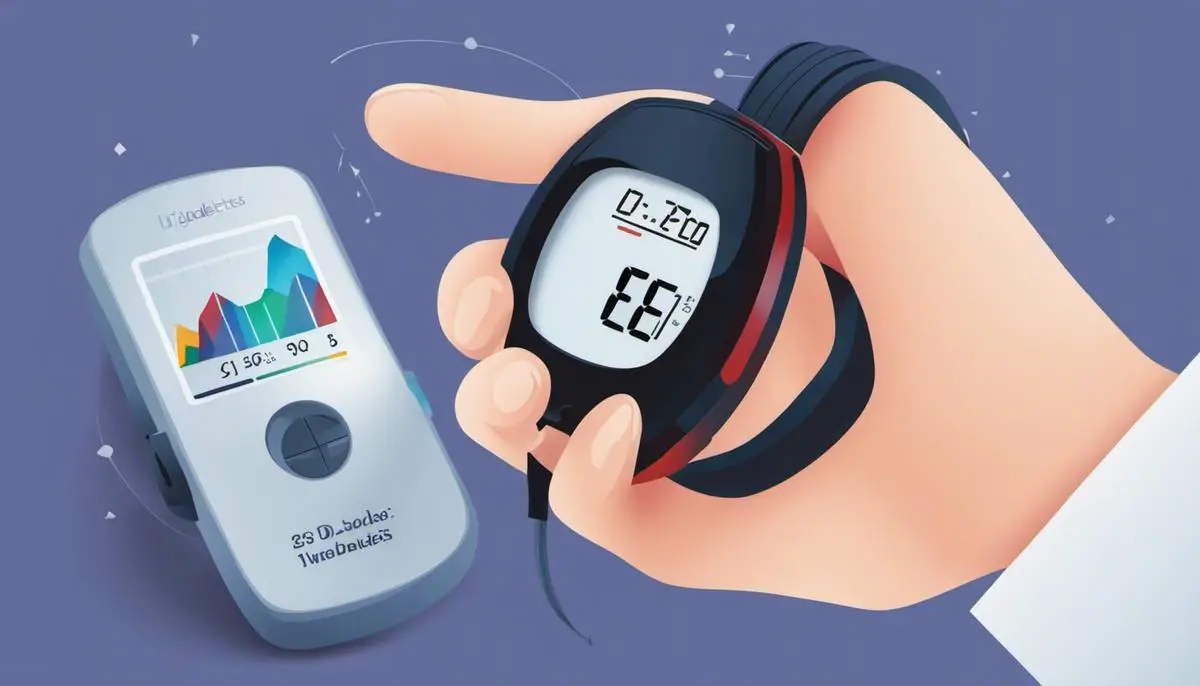The prevalence and impact of diabetes, particularly on men, can be profound and far-reaching. As an ailment that modifies the body’s handling of glucose or sugar in the bloodstream, the interrelation between diabetes and the body’s physiological processes can yield significant symptoms, such as frequent urination. This article delves into the core understanding of diabetes, expanding on its types and how it affects the body, with a focal point on the all-important process of glucose management. Furthermore, it seeks to illustrate the intricate association between diabetes and the occurrence of polyuria, or frequent urination, a frequently experienced symptom among male diabetic patients. The reading maps out these subjects comprehensively for a general audience, providing a detailed insight into diabetes and its symptoms in men, being vigil about the signs, and suggests strategies to manage the condition effectively.
Understanding Diabetes
Understanding Diabetes and its Effect on the Body
Diabetes is a chronic condition that affects how the body processes blood sugar, also known as glucose. The two major types are Type 1 and Type 2 Diabetes. In Type 1 Diabetes, the body’s immune system attacks the cells that create insulin, the hormone that regulates the level of glucose in the blood. As a result, the body produces less insulin or none at all, causing high blood glucose levels.
On the other hand, Type 2 Diabetes, the most common type, occurs when the body either becomes resistant to insulin or doesn’t produce enough. This again results in high blood glucose levels. When glucose builds up in the blood instead of being used for energy, it can lead to various health complications, including damage to the heart, kidneys, nerves, and eyes.
Insulin’s Role in Regulating Glucose Levels
Insulin, which is produced by the pancreas, plays a significant role in maintaining a balance of glucose in the body. After eating, carbohydrates in food are broken down into glucose which is then released into the bloodstream. In response, the pancreas secretes insulin, which acts as a key, unlocking cells so they can absorb the glucose and convert it into energy.
If insulin production is compromised, as is the case with diabetes, this process fails to function properly. High levels of glucose remain in the blood, leading to hyperglycemia. Consistent hyperglycemia can trigger a range of diabetes symptoms and can eventually result in serious complications.
Spotting Frequent Urination as a Potential Sign of Diabetes in Men
Frequent urination, known medically as polyuria, is a typical symptom of diabetes in men. This symptom arises as high blood glucose levels, due to either insufficient or ineffective insulin production, prompt the kidneys to work overtime to filter the excessive sugar.
If the kidneys are unable to keep up with the excess glucose, they expel it into the urine, drawing fluids from tissues in the process. This causes a ripple effect resulting in the stimulation of the bladder and an increased urge to urinate. This often goes hand in hand with excessive thirst, as the body attempts to compensate for the lost fluids by inducing a higher fluid intake.
This frequent need to urinate can turn into an inconvenience, disrupt daily activities and even lead to dehydration if not balanced with ample fluid intake. Noticing changes in urination patterns such as frequency or volume is crucial, as they might be early signs of diabetes. Any significant changes should warrant an immediate visit to a healthcare provider to discuss potential treatments or lifestyle amendments to fit one’s situation and needs.

Diabetes and Frequent Urination
The Connection Between Diabetes and Frequent Urination
Diabetes, a long-term medical condition, hampers the body’s capacity to produce or respond accurately to insulin, leading to an irregular carbohydrate metabolism and a rise in blood glucose levels. Among the foremost symptoms of this condition is the increased frequency of urination, or polyuria, with men being at a higher likelihood of experiencing it. Those suffering from this condition may have to visit the bathroom far more frequently than they are accustomed to, even during night.
Why Does Diabetes Cause Frequent Urination?
Normal kidney function allows for the filtration of blood and reabsorption of needed components, with excess waste expelled in urine. However, when blood sugar levels rise, as seen in diabetes, the kidneys are unable to reabsorb all the glucose. This excess sugar in the kidneys pulls more water into the urine, increasing the volume of urine produced and hence, leading to more frequent urination.
Diabetes Type 1 and Type 2 Impacts on Urination
Both Type 1 and Type 2 diabetes can cause frequent urination, but the reasons for this can be slightly different. Type 1 diabetes is an autoimmune disorder that causes the immune system to destroy insulin-producing cells in the pancreas. As a result, the body can’t produce enough insulin to regulate blood sugar levels, leading to increased urination.
Type 2 diabetes, on the other hand, occurs when the body develops insulin resistance. Even though the pancreas increases insulin production to compensate, it often can’t produce enough to keep up, causing high blood glucose levels and triggering frequent urination.
Managing Frequent Urination in Diabetic Men
Recognizing and addressing the symptom of frequent urination is crucial for men diagnosed with diabetes. One approach to management is controlling the level of blood sugar. A healthy diet, regular physical activity, regularly monitoring blood glucose levels, and proper medication can help manage diabetes and consequently reduce the frequency of urination.
Knowing the signs of high blood sugar levels can also help manage frequent urination. Symptoms such as excessive thirst, fatigue, blurry vision, and of course, frequent urination, may indicate a spike in blood sugar levels. In such situations, prompt consultation with a healthcare provider is recommended.
Medications may also play a role, as some drugs used to manage diabetes, such as SGLT2 inhibitors, can increase urination rates. If urination becomes too frequent and inconvenient, discussing medication options with a healthcare provider can be beneficial.
Lasty, maintaining regular urologist screenings is advisable for men with diabetes as they are at an increased risk for various urologic conditions which might aggravate frequent urination.
Men with diabetes often experience frequent urination, a condition which can be mitigated with proper blood glucose control, a heightened sense of symptom awareness, and the appropriate use of prescribed medications. Ensuring regular consultations with healthcare practitioners and keeping up with regular health check-ups are critical strategies in managing this symptom related to diabetes effectively.

Identifying Diabetes Symptoms in Men
Understanding the Relationship Between Frequent Urination and Diabetes
Frequent trips to the bathroom, otherwise termed as polyuria, is a common symptom of diabetes in men. This usually manifests when there are excessively high levels of glucose in the blood, driving the kidney to filter out the excess sugar. To do this, the body needs to draw additional water from the blood, which helps dilute the sugar and produces large amounts of urine, consequently leading to frequent urination.
Other Diabetes Symptoms in Men
While frequent urination is a common symptom, diabetes may also manifest different symptoms. These include an insatiable thirst, extreme fatigue, sudden weight loss due to the body’s inability to effectively use glucose for energy, skin infections, slow-healing wounds, and erectile dysfunction. Certain types of diabetes, such as type 1 diabetes, might escalate into frequent urination accompanied by weight loss and excessive hunger.
Prevalence of Diabetes in Men
Diabetes affects approximately 34.2 million Americans, around 10.5% of the population, according to the Centers for Disease Control and Prevention. Among these, it is slightly more prevalent in men – 17.5 million men in the United States have been diagnosed with diabetes compared to 16.2 million women. It is important to consider these figures as it underlines the significance of early diagnosis and timely treatment among men.
Importance of Early Diagnosis and Regular Monitoring
Early diagnosis and regular monitoring of diabetes are critical in preventing complications associated with the disease. Uncontrolled high blood sugar levels can lead to severe complications, including heart disease, stroke, kidney disease, eye problems, and nerve damage.
For most people, diabetes symptoms are often subtle and may not appear serious, which is why many people remain undiagnosed. Regular monitoring of blood sugar levels can be a crucial part in managing the disease and maintaining a healthy lifestyle.
Frequent urination may not always imply diabetes, as it can also be a symptom of other health conditions like urinary tract infection, an enlarged prostate, interstitial cystitis, or a side effect of certain medications. Therefore, medical advice should be sought if frequent urination or other diabetes symptoms are observed.
It is recommended for men aged 45 and above, or those having risk factors like obesity and family history, to have regular screening for diabetes. Diet control, exercise, and medications are used to control blood sugar levels, improve overall health, and reduce the risk of complications.
Managing Diabetes: A Combination of Lifestyle Changes and Appropriate Medication
Successfully managing diabetes involves adopting positive lifestyle behaviors, including regular exercise, a balanced diet, maintaining a healthy weight, and regular health check-ups. Moreover, medication, such as insulin therapy, may often be employed when lifestyle modifications alone don’t suffice in achieving targeted blood sugar levels. For diabetic individuals, consistent monitoring of blood sugar levels and strict adherence to their medication regimen is imperative. This regimen plays a critical role in managing symptoms like frequent urination and circumventing potential disease complications.

Managing Diabetes and Frequent Urination
Deciphering Frequent Urination: A Characteristic Symptom of Diabetes in Men
Frequent urination is a typical symptom encountered in men diagnosed with diabetes, specifically type 2 diabetes. Essentially, when the body struggles to utilize glucose – its primary energy source – effectively, it results in an accumulation of glucose in the bloodstream. This, in turn, makes the kidneys work harder than usual, producing more urine to eliminate the excess glucose. Consequently, the body pulls water from tissues to neutralize the glucose concentration, consequently amplifying the urge to urinate frequently.
Lifestyle Changes to Manage Frequent Urination
One of the most common ways to manage diabetes and frequent urination in men is to adopt lifestyle changes. Diet modification, regular exercise, staying hydrated, reducing caffeine and alcohol intake, and maintaining a healthy weight can all contribute to mitigating the symptom of frequent urination.
Diet modification involves a balanced intake of low-glycemic foods, high in fiber, lean proteins, and healthy fats to help keep glucose levels steady. A regular exercise regimen can help lower the amount of glucose in the blood, improve the body’s insulin sensitivity, and even manage body weight. Staying hydrated helps flush out excess glucose, while limiting caffeine and alcohol minimizes diuretic effects. Maintaining a healthy weight eases the pressure on the bladder, reducing the frequency of urination.
Medical Treatments Available
Dealing with the symptom of frequent urination may also require medical intervention. Medications like antidiuretic drugs can help by slowing down the kidney’s urine production. There are also medicines that relax the bladder muscles, reducing frequent urination. Insulin management can also assist in keeping blood glucose levels under control.
Interactions may occur when different medications are taken simultaneously. It is therefore important to consult a healthcare provider to better understand the possible side effects and synergies between various treatments.
Practical Tips For Managing Frequent Urination
Beyond these lifestyle changes and medical treatments, there are numerous practical tips for managing frequent urination. For instance, timed urination, a process of urinating at regular intervals, can help train the bladder. Pelvic floor exercises can also strengthen the muscles in the pelvic area that help control urination. Reducing fluid intake before bed may lower the risk of nocturnal bathroom visits. Finally, using a urine guarding pad can also help in the case of incontinence episodes.
Managing diabetes and its symptoms such as frequent urination in a timely manner is crucial for preventing further complications, such as kidney disease, nerve damage, and increased vulnerability to urinary tract infections. It is vital for individuals to consult their healthcare providers to design a personalized and effective management plan.

The successful management of diabetes and reducing the frequency of urination boils down to understanding the disorder and taking proactive steps. Committing to beneficial lifestyle modifications, seeking appropriate medical treatments, and employing practical means can significantly alleviate the inconvenience of frequent urination and improve the overall quality of life. Being informed about the symptoms, particularly those specific to men, increases the chances of early detection, ensuring effective management, and mitigating serious complications. Through an inclusive approach to understanding and managing diabetes, it is possible to take control of our health and live fulfilling, less hindered lives.
